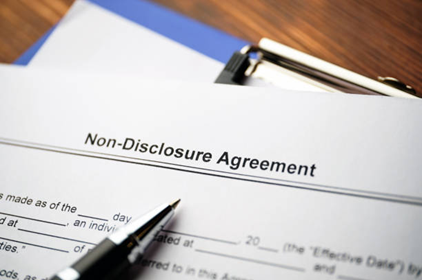- Hyderally & Associates P.C | Employment Lawyers NJ, NY
- (973) 509-8500
- tyh@employmentlit.com
New Jersey Employees Who Need to Take Leave Have Options!

New York Restricts Employers’ Access to Employees’ Social Media Accounts
February 8, 2024
Teacher can pursue her Age Discrimination Claim!!!
March 5, 2024By: Ty Hyderally, Esq., Jennifer Vorih, Esq., and Adela Barbura
New Jersey employees who need to take leave for their own medical condition or to deal with a family situation will want to understand the various types of leave available to them. Many New Jersey employers voluntarily offer paid time off to employees. In addition, there are three key laws which benefit New Jersey workers who need to take leave: the federal Family and Medical Leave Act (“FMLA”), the New Jersey Family Leave Act (“NJFLA”), and the New Jersey Earned Sick Leave Law (“NJESLL”). Each of these laws addresses different aspects of employee well-being, providing a framework which balances the needs of workers and the operational requirements of businesses.
Family and Medical Leave Act (“FMLA”)
BENEFITS:
Enacted in 1993, the FMLA was created to assist employees in managing their work and family responsibilities by allowing them to take up to 12 weeks of unpaid, job-protected leave per year for specific family or medical reasons. These reasons include:
- To care for and bond with the employee’s newborn child;
- To care for and bond with the employee’s newly adopted or foster child;
- To care for the employee’s immediate family member (i.e., spouse, child, or parent) with a serious health condition; or
- To take medical leave when the employee is unable to work because of a serious health condition.
ELIGIBILITY:
To be considered eligible under the FMLA, an employee must work for the employer for at least 12 months and perform at least 1,250 hours of service for the employer during the year immediately preceding the leave. 29 CFR § 825.110. While the 1,250 hours of service must have been within the immediately preceding 12 months, the required 12 months of employment with an employer do not have to be continuous. In case of a “break in service,” any time the employee worked before the break counts toward fulfilling the 12-month work requirement, as long as the break is for less than seven years. However, this seven-year limit does not apply if the break in service is (1) due to an employee’s fulfillment of military obligations, or (2) governed by a collective bargaining agreement or other written agreement.
New Jersey Family Leave Act (“NJFLA”)
BENEFITS:
The NJFLA provides paid leave for employees working in the state of New Jersey, ensuring that those employees can take time off to care for their loved ones without risking losing their job. Employees receiving NJFLA leave are paid 85% of their regular pay, to a maximum of $1,055 per week. Under the NJFLA, eligible employees can take up to 12 weeks of paid, job-protected leave during any 24-month period for any the following reasons:
- To care for or bond with a child, as long as the leave begins within 1 year of the child’s birth or placement for adoption or foster care;
- To care for a family member, or someone who is the equivalent of family, with a serious health condition (COVID-19), or who has been isolated or quarantined because of suspected exposure to a communicable disease (including COVID-19) during a state of emergency; or
- To provide required care or treatment for a child during a state of emergency if their school or place of care is closed by order of a public official due to an epidemic of a communicable disease (including COVID-19) or other public health emergency.
The 12 weeks of leave may be taken consecutively, i.e., all at once, or can be taken on an intermittent basis. It is important to note that the NJFLA is not the same as the FMLA, so an employee will not use up their NJFLA leave by taking leave under the FMLA. Thus, in some situations, an eligible employee may be entitled to take up to 12 weeks of FMLA leave and 12 weeks of NJFLA leave in a single 12-month period.
ELIGIBILITY:
Under the NJFLA, an eligible employee means any individual employed by the same employer for 12 months or more, who has completed at least 1,000 base hours during the 12 months preceding the leave. Most importantly, the 12 months of service with the employer do not have to be continuous or consecutive; all time worked for the employer is counted. However, only employers who employ at least 30 employees worldwide are required to provide NJFLA leave.
New Jersey Earned Sick Leave Law (“NJESLL”)
BENEFITS:
In 2018, New Jersey implemented the NJESLL to recognize the importance of maintaining a healthy workforce. The NJESLL ensures that employees accrue earned sick leave at a rate of one hour for every 30 hours worked, up to a maximum of 40 hours per benefit year. Employees can use this time for:
- diagnosis, care, or treatment of an employee’s mental or physical illness, injury, or other adverse health condition, or for preventive medical care for the employee;
- the employee to aid or care for a family member during diagnosis, care or treatment of, or recovery from, the family member’s mental or physical illness, injury, or other adverse health conduction, or during preventive medical care for the family member;
- absence necessary due to circumstances resulting from the employee, or a family member of the employee, being the victim of domestic or sexual violence;
- time during which the employee is not able to work because of a closure of the employee’s workplace, or the school or place of care of the employee’s child, due to a public health emergency;
- time needed for the employee to attend a school related conference, meeting, function, or other event requested or required by the school, or to attend a meeting regarding care for the employee’s child in connection with the child’s condition or disability.
ELIGIBILITY:
Under the NJESLL, an employee is defined as an individual engaged in service for compensation to an employer in the business of the employer who performs that service in New Jersey. Full-time, part-time, and seasonal employees are all covered. Employees who are not covered under the NJESLL include: (1) individuals engaged in service for compensation in the construction industry under contract pursuant to a collective bargaining agreement; (2) per diem health care employees; or (3) public employees who are provided with sick leave at full pay under any other law or rule of New Jersey.
If employees leave an employer and return to that same employer within six months (such as seasonal employees and rehires), they can retain their accrued earned sick leave. If the employee is rehired within six months, the employer is required to reinstate their previously accrued earned sick leave. Further, an employee who is reinstated by the employer within six months is not required to wait 120 days after resuming employment to begin using accrued earned sick leave. Rather, the total number of calendar days worked by the employee prior to the separation shall be applied as credit toward the new 120-day waiting period. For example, if an employee worked 70 days before separation and was rehired within six months, the employee will have to wait only 50 days before using earned sick leave.
If an employee is rehired after more than six months, the NJESLL does not require the employer to restore unused earned sick leave. Thus, on the first day of reemployment, the employee will start with a zero balance of accrued sick leave and will not be eligible to use earned sick leave for 120 days after resuming employment with the employer.
As the workforce continues to evolve, it is crucial to stay informed about these laws. Adequate knowledge of the FMLA, NJFLA, and NJESLL ensures that employees can advocate for fair treatment, secure necessary accommodations, and access benefits that contribute to a healthier work-life balance. If you believe your benefits under these laws have been infringed, you may want to contact Hyderally & Associates, P.C. today.
En nuestra firma hablamos español. This blog is for informational purposes only. It does not constitute legal advice, and may not reasonably be relied upon as such. If you face a legal issue, you should consult a qualified attorney for independent legal advice with regard to your particular set of facts. This blog may constitute attorney advertising. This blog is not intended to communicate with anyone in a state or other jurisdiction where such a blog may fail to comply with all laws and ethical rules of that state of jurisdiction.


